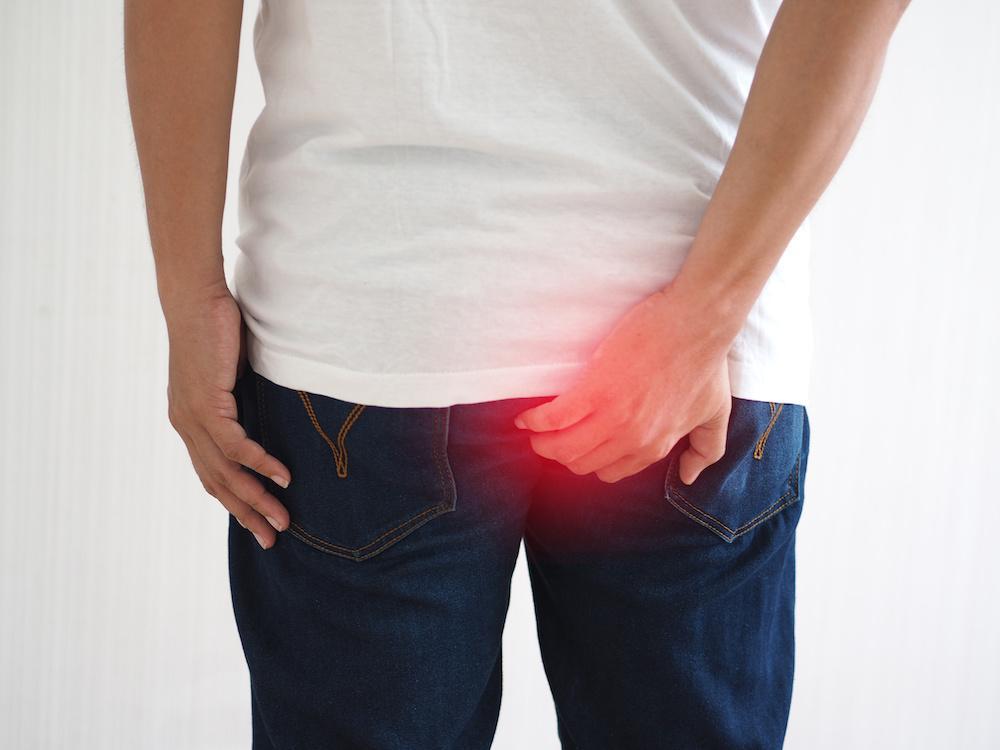
Top Signs of a Thrombosed Hemorrhoid

Hemorrhoids are a common condition that affect millions of Americans on a daily basis, according to the American Society of Colon & Rectal Surgeons. If you’re like most, you may suffer with your hemorrhoids longer than necessary before seeking medical help.
Though hemorrhoid symptoms vary and may even be mild enough for you to ignore, it’s hard to suffer through the symptoms of a thrombosed hemorrhoid, which is an external hemorrhoid that’s developed a blood clot.
At Midwest Hemorrhoid Treatment Center in St. Louis, Missouri, our board-certified family physician Dr. Betsy Clemens has extensive experience diagnosing and treating thrombosed hemorrhoids. To limit the number of days you spend suffering in pain, we want to share the top signs of a thrombosed hemorrhoid.
Worsening of your itching and irritation
External hemorrhoids develop under the highly sensitive skin near your anus. With this type of hemorrhoid, you may experience itching, burning, and general irritation. By comparison, internal hemorrhoids, which develop inside your rectum underneath the sensitive tissue, don’t cause physical discomfort but may cause you to have blood in your stool.
If your external hemorrhoid develops a blood clot and becomes thrombosed, you may notice a worsening of your symptoms. On a scale of 1-10, your discomfort level may jump from a 3 to a 10.
Thrombosed hemorrhoids develop quickly, and discomfort tends to worsen during the first 48 hours and then improve slightly.
Sitting is painful
Severe anal pain is one of the tell-tale signs of a thrombosed hemorrhoid. Unfortunately, because of the thrombosed hemorrhoid’s location, you may find sitting simply too painful to endure. Walking, too, may also exacerbate your anal pain.
Bleeding after a bowel movement
Bleeding after a bowel movement is common with all types of hemorrhoids, including a thrombosed hemorrhoid. Even though hemorrhoids are a common cause of bloody stools, it’s not a symptom you should ignore. We recommend you contact us to schedule an evaluation if you’re experiencing rectal bleeding and severe anal discomfort.
There’s no need to suffer, and it’s important to rule out other causes of your bleeding, such as colon cancer or inflammatory bowel disease.
Hardening of your external hemorrhoid
If it feels like you’re sitting on a stone, your external hemorrhoid may have developed a small blood clot. Blood clots are semi-solid clumps of blood created by the platelets and special proteins in your blood in response to an injury.
The constant stretching of the tissue in your rectum causes the walls of the blood vessels to weaken and thin. Over time, these blood vessels may swell and bulge from pooling blood, which leads to hemorrhoids. When blood gets trapped in the swollen vein, blood clots develop, creating the thrombosed hemorrhoid.
Treating your thrombosed hemorrhoid
Now that you know the top signs of a thrombosed hemorrhoid, you may wonder what you can do about it. We treat thrombosed hemorrhoids with a simple in-office procedure called a thrombectomy. During a thrombectomy, Dr. Clemens makes a small incision in the hemorrhoid and drains the trapped blood.
Anesthesia isn’t needed for the procedure. However, we may not be able to perform the simple treatment to alleviate your discomfort if you wait too long to schedule an appointment. This procedure works best when conducted within 72 hours of the blood clot’s formation.
If you’re not a good candidate for a thrombectomy, we may suggest at-home treatments to ease discomfort, such as sitz baths, a high-fiber diet, and plenty of fluids, until your body dissolves the blood clot on its own.
You don’t have to suffer from hemorrhoid pain and discomfort, If you suspect you have a thrombosed hemorrhoid, give us a call at 636-228-3136 or contact us online today.
You Might Also Enjoy...


New Year, New You: 3 Resolutions for Better Bowel Health

Don't Let Anal Fissures Ruin Your Holiday: A Guide to Prevention and Treatment

Navigating the Holidays: How to Prevent Hemorrhoid Discomfort During Your Travels

Are Your Daily Habits Increasing Your Risk of Hemorrhoids?


